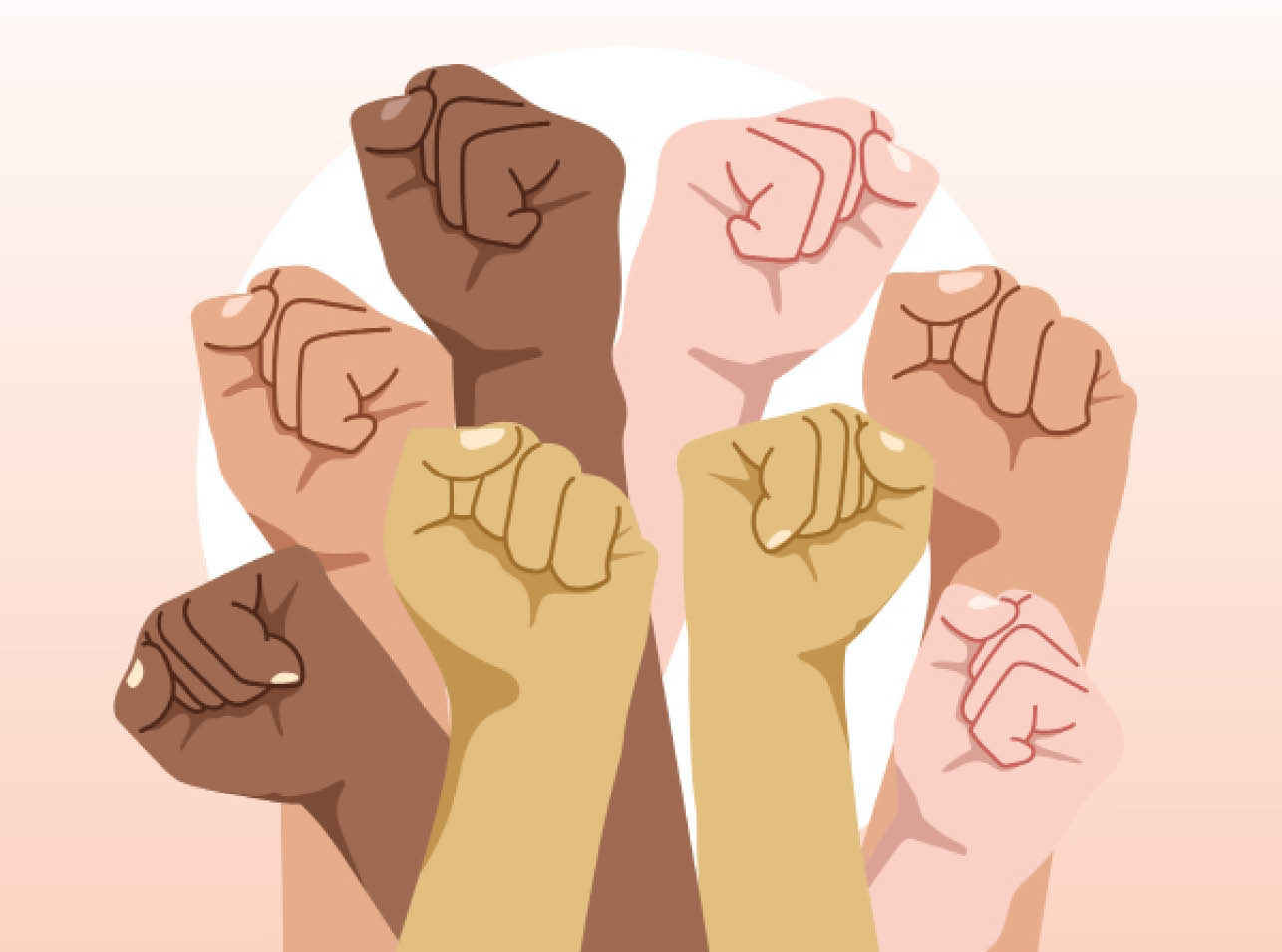When Islam rose over pagan Arabia, it offered a teaching through the Qur’an and the traditions of the Prophet (SAW) that encompassed every matter relating to society and the individual. It called believers to brotherhood, friendship, love and benevolence with a view to binding them together so that no divisive agent such as hatred, malice or envy would alienate one individual from others. Allah (SWT) asserts in Qur’an 49:10 “Believers are but a single brotherhood”. Social cohesion in an Islamic society involves encouraging one another to piety, righteousness, mutual responsibility and the nurturing of a community in which younger generations appreciate goodness. This helps in mobilizing all the constructive energies of people for the general welfare of citizens as against corruption and evil.
In this manner, the goals and activities of members of the society are harmonized, their sense of co-operation awakened, and their collective efficiencies set to work for the service of humanity. The enforcement of the Muslim Brotherhood is one of the self-sacrificing concepts of Islam. Allah (SWT) states in Qur’an 3:103 “And holdfast, all together, by the rope which Allah (stretches out for you) and be not divided among yourselves …” This allegory, according to the great Qur’anic exegete, Yusuf Ali, is that of a people struggling in deep water, to whom a benevolent providence stretches out a strong and unbreakable rope of rescue. If all would hold fast to it together, their mutual support shall certainly add to the chances of their safety.
The true spirit of brotherhood is one precious shared value that is missing today among Individuals and groups. The absence of it in our inter-personal relationships is as good as disunity. People’s indifference, apathy, lack of shared feelings, unwillingness to make sacrifices, and the complete lack of the spirit of altruism are indices of social immaturity. A situation where individuals fail to appreciate and link the correlation between their own lives to the happiness and welfare of others could be compared to a ship sinking in a storm at sea where everyone is concerned about how to save just his or her own life.
Behavioural scientists opine that there are two kinds of people in the society; those who undertake painstaking efforts for the comfort of others, and those who cause hardship to others for the sake of their own comfort. The second category of people reflects western concept of brotherhood. If today’s developed nations decide to budget a fraction of their economic resources for the ‘development’ of developing nations, their action in the first place, is not usually inspired by pure humanitarian motives. Rather, it is because if the economy of developing countries collapses and thus become unable to consume the products of developed nations, their economies would equally suffer distress due to decline in foreign trade. While Islam teaches that you give not in anticipation of receiving anything in return, it is the opposite in western civilization where you give in order to receive.
- THE BEARING: Why Society Sees People With Locs, Tattoos Differently
- Malleri: Gombe community ravaged by hippos
While altruism is central to the concept of brotherhood in Islam, the act of benevolence is to be carried out without undue humiliation of the recipient of any kind of favours. A proper and subtle approach should be adopted in order to preserve the dignity of every indigent person. Islam demands from the wealthy to hold their hands low when giving so that the less-privileged person’s hand remains higher while receiving. This is the mutual and respectful condition under which the act of giving and taking should be conducted and concluded.
One day, a man came to Prophet Muhammad (SAW) and declared that he was hungry. The Prophet (SAW) immediately sent someone to bring food from his house. The Prophet’s wife said with regret that there was nothing in the house except water. The Prophet (SAW) turned to his companions and asked them: “Can any one of you accept him as his guest?”. Thereupon, one of the Ansar (Helpers) of Madina extended his hospitality to the man. When the man’s host arrived home, he was told that the food available was not going to be enough for all of them. At the time when the guest was to eat, the host put out the lamp so that the guest would think he too was eating food. This is the sincere sense and spirit in which individuals could make sacrifices for the comfort of others that may be experiencing deprivation and other forms of adversities, difficulties or inconveniencies in life.
Hospitality, kindness and respect for human dignity are forms of expressing the brotherhood that Islam expects Muslims to show to one another. These values bind the kith and kin together. The love of one’s kinsman or woman is as important as self-love. There’s need to strike a balance of mutual interdependence between “I” and “We” as a necessary condition for ‘oiling’ the relationship that binds people together as family members, partners, associates, friends, colleagues, professionals, or as contemporaries such that the individuals’ pronoun of “I” would transform into collective “We”. May Allah (SWT) guide us to treat others in the best way we would want others to care for us, amin.

 Join Daily Trust WhatsApp Community For Quick Access To News and Happenings Around You.
Join Daily Trust WhatsApp Community For Quick Access To News and Happenings Around You.


